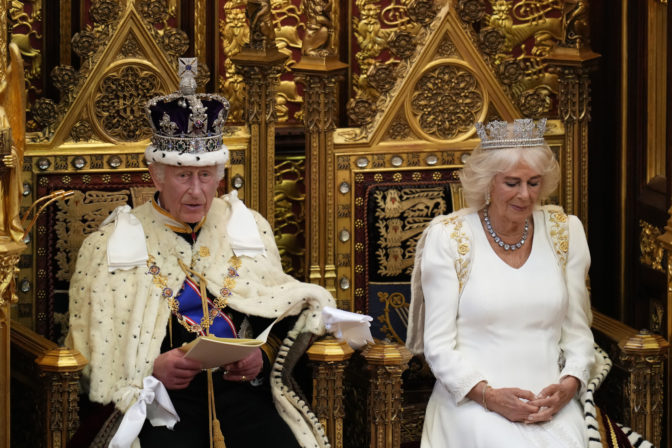BRATISLAVA, November 23, (WEBNOVINY) — The outgoing Cabinet of Iveta Radicova approved a proposal to put the draft constitutional bill on budgetary responsibility through an expedited legislative procedure in the parliament, citing as justification the looming huge economic damages that accompany the existing global economic and financial crises.
The current economic situation calls for instant effective solutions to alleviate the impacts of the financial crisis in the eurozone countries and stabilize the monetary and economic system of the single currency area. The aim is to avert extensive financial losses in the Slovak economy. The paper approved by the Cabinet on Wednesday argues that the constitutional bill on budgetary responsibility must be passed quickly regarding the given situation.
Following a month-long public discussion, six parliamentary parties submitted the respective paper to the parliament two weeks ago. The broad political support for the bill indicates that Slovakia pursues a responsible management of public finances and is determined to avoid debt increase. The blueprint consists of four major fields: the debt brake itself, i.e., the constitutionally enshrined debt ceiling; the establishment of a Budgetary Responsibility Council; rules for transparency in public funds; and rules and restrictions governing economic performance of self-governments.
The paper envisages an automatic sanction mechanism that will be launched already at the debt limit of 50 percent of GDP. The Finance Minister would then be obliged to clarify the increase to MPs and suggest measures to reverse the growth. At 53 percent, the Cabinet would be obliged to pass a package of measures to trim the debt and freeze its wages. At 55 percent, 3-percent binding of expenditures would be launched automatically and next year’s budgetary expenditures would be frozen, except for co-financing of the EU funds. At 57 percent of GDP, the Cabinet would have to table a balanced budget. Should the debt climb to 60 percent of GDP, the Cabinet would have to face a confidence vote in Parliament. The volume of public debt reported by the EU’s Statistical Office Eurostat on an annual basis shall be the key data.
The draft counts on more measures to upgrade the quality and transparency of Slovakia’s fiscal policy. For instance, an independent Budgetary Responsibility Council, funded from the central bank’s budget, shall compile reports on long-term sustainability of public finances, fulfillment of fiscal responsibility rules and issue positions over fiscal impact of legislative proposals. Also, it shall evaluate Slovakia’s economic development in terms of public finances.
The paper also contains provisions related to self-governments. The bill’s authors and representatives of the Cabinet and self-governments have been in talks about the rules for a month. Self-governments agreed to subject to budget responsibility rules and the Finance Ministry, in return, waived the concept of a tax mix indented to overhaul the funding of self-governments. Self-governments whose debts will exceed 60 percent of real current revenue from the previous year will pay financial sanctions.
The bill is to take effect on March 1, 2012 except some provisions on self-governments.
SITA












